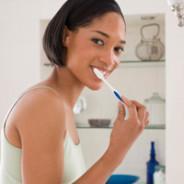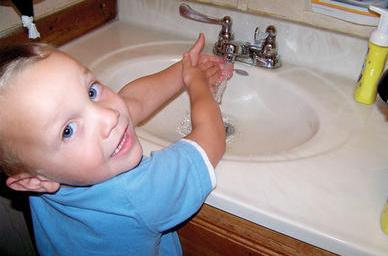
Personal hygiene is a routine of personal care that keeps you clean and healthy. Good personal hygiene is key to preventing infection and disease and maintaining general cleanliness.
A number of diseases can be prevented by personal hygiene. Many diseases and conditions can be prevented or controlled through appropriate personal hygiene and by frequently washing parts of the body and hair with soap and clean, running water. Good body washing practices can prevent the transmission of diseases for example lice. Throughout the day, your body comes into connection with dirt and bacteria. Incorporate hygiene practices that keep your body healthy and clean.
The importance of personal hygiene extends beyond our desire for social acceptance and positive first impressions; proper hygiene goes quite a distance towards protecting us in the harmful bacteria around us that cause disease.
Hygiene is especially important within an emergency such as a flood, hurricane, or earthquake, but finding clean, safe running water can sometimes be difficult. The following information will help to ensure good hygiene and handwashing within the event of an emergency.
Safeguard during a disease
Good hygiene also includes what you do when someone in your house falls sick. For instance, if you are suffering from common cold, use tissues and antibacterial soap. It’s also important to use separate linen and utensils to ensure that germs don’t get transferred from one person towards the other. Doing this will ensure that one person’s sickness within the family does not affect everyone.
Bath regularly
Although bathing regularly sounds somewhat obvious thing to do, many are recognized to skip bathing in times of cold weather or due to sheer carelessness. Irrespective of whatever reason, bathing is the first thing that you should start and end your day with. Foaming and rinsing with antibacterial soap helps to ensure that you get rid of all those germs you have accumulated during the day. Even if you haven’t touched anything dirty, you might have accumulated germs because of your own perspiration. Bathing is important not just to feel fresh and agile, but also to stay healthy.
Ensure wearing clean clothes
Keeping your body clean and hygienic is of no use if it is not followed by wearing clean and tidy clothes. Bacteria and dry skin cells stick to the fabric thus developing that weird and funky smell as experienced after gym workouts. Also, change your undergarments and socks daily. Most importantly, if you want to repeat a dress one more day, try to hang it among the launderings thus allowing it to air out and get free from germs and bacteria caused by sweat.
Spreading Viruses and Bacteria
Bacteria covers every surface we touch and can spread to anything or anyone we touch. Items such as cell phones can host thousands of germs, including the meningitis-causing staph bacteria.
Wash hands frequently
Washing hands frequently is a of the most fundamental ways to kill bacteria and prevent infections. Some of the common instances then you should wash hands include eating food, touching other people’s things, getting back from the gym, cooking a meal, patting your pet, clearing out the garbage and using the loo. Carrying help sanitizer in your bag will help you to stay clean should you don’t have access to a washroom anywhere you go.
Dental Hygiene
Brushing and flossing after every meal prevents foul breath, cavities and gum disease. Your dentist can perform a dental cleaning to eliminate plaque build-up or eliminate food lodged between your teeth.
Keep your house clean
You don’t have to be a cleanliness freak who spends long periods of time to make the house look spic and span. But you must make sure that no matter how busy you are, your house adheres to basic norms of hygiene. Be sure you vacuum clean your upholstery occasionally, scrub your kitchen and beautify your bathroom of all the congealed grime. This can ensure that you don’t give bacteria and germs a chance to infest in the house and make anyone fall sick.
Clean the peripheries of your house
You might be keeping your own house spotlessly clean but if your patio, garage, backyard and driveway are filthy, you’ll still leave yourself plenty of chances to fall sick. Get your garden weeded and tended to, a couple of times in a week. If you have a patio or porch, ensure that it is cleaned and fumigated to control rodent infestation. For those who have too much stuff stacked in the spare room, sort and clean the clutter once in every couple of months so that you minimize disease generating dust and filth near your house.
Foot Care
Bacteria thrive in damp, dark environments, and shoes make a perfect breeding-ground. Avoid odor and infection by changing your socks once they become damp, washing and drying your feet thoroughly, changing your shoes from day to day and using anti-fungal foot powders on your feet and in your shoes.

Good Hygiene Habits
Clean veggies, fruits and meats before consuming them
Adapting safe practices in planning meals is critical to prevent yourself and your family from falling ill frequently. Fruits purchased from the market should not be consumed without having to be thoroughly washed. Vegetables too have to be washed and semi cooked prior to being consumed. When you prepare meats, make sure that they are thoroughly cooked, as raw meats boost the chances of stomach ailments and other intestinal diseases.
